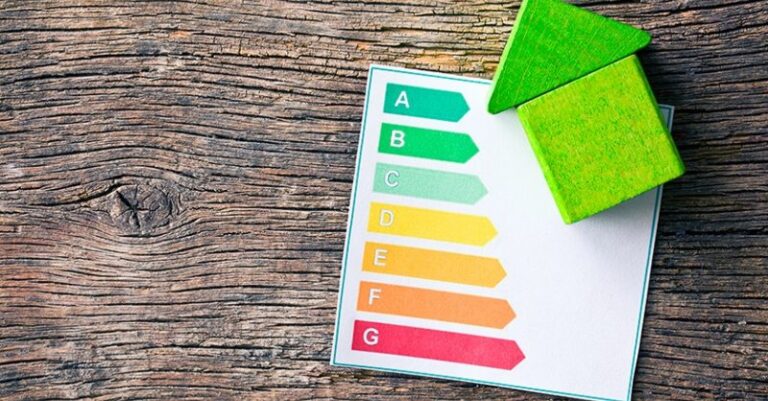The cost of upgrading a property from an energy performance certificate rating of D to C is up to £6,155, meaning the national retrofitting bill could be as much as £38bn, according to analysis by Habito.
It calculates that for one-bedroom flats or properties measuring under 55m² the cost is up to £3,653. For a small mid-terrace house (under 100m²), it is up to £6,400.
For a large family detached home (100-200m²) the potential cost rises to £12,540, more than double the national average.
The broker also found that 83% of Brits do not know their home’s EPC rating and 81% of homeowners do not know what a green mortgage is.
The government is on a mission to retrofit the UK’s ageing housing stock – which contributes 20% of the nation’s CO2 emissions – and bring it up to an energy efficiency rating of C or above by making sustainable home improvements ranging from low-cost changes such as switching to LED lightbulbs, right up to substantial upgrades like fitting solar panels.
But with 59% of homes registering a D rating or below, this could amount to £38bn nationally.
There are currently around 29 million homes in the UK, of which 19 million have an EPC lower than C..
Two in five (42%) Britons have never heard of an EPC.
A further two fifths (41%) know what an EPC is but don’t know their home’s rating.
Just 6% know their exact rating, while just one in 10 (12%) has a “rough sense” of what their home’s rating is.
The Department for Business, Energy and Industrial Strategy wants mortgage lenders to use EPC data to make lending decisions that offer better terms to those with more energy-efficient homes.
Habito says it is in the process of securing a funding partner to develop green mortgages,
Habito chief executive Daniel Hegarty said: “20% of the UK’s carbon emissions come from our homes. We’re quite literally sitting on a ticking timebomb.
“Collectively, we, and future generations, can’t afford for that not to change, so it’s great news that sustainability in the home is being prioritised by the government.
“But it’s a huge problem that awareness is so low and that remedial costs are so high: the UK’s retrofitting bill should not just fall on the shoulders of consumers to settle.
“For too long sustainable products and services have carried a ‘green premium’.
“Saving the planet can’t be the preserve of the rich or the super-fans. And simply focusing on banks and lenders to provide the solutions could put those least able to afford retrofitting measures at a disadvantage: down valuations, negative equity, even a new type of mortgage prisoner, trapped in homes with unfavourable EPC ratings.
“The government is in danger of creating another have vs have-nots policy. What is needed is radical collaboration to create innovative and accessible green financing and home-improvement solutions.”
Hegarty added: “Our analysis tells us that if everyone with a D rated property moved to a C rating, we could reduce CO2 emissions in England and Wales by more than 5 million tonnes, equivalent to 6% of all household emissions annually.
“We – government and industry – need to work harder than ever to explain the value and importance of understanding your home’s EPC. They’re the key to optimising your home’s energy efficiency, saving money on bills and managing your home finances sustainably.”




